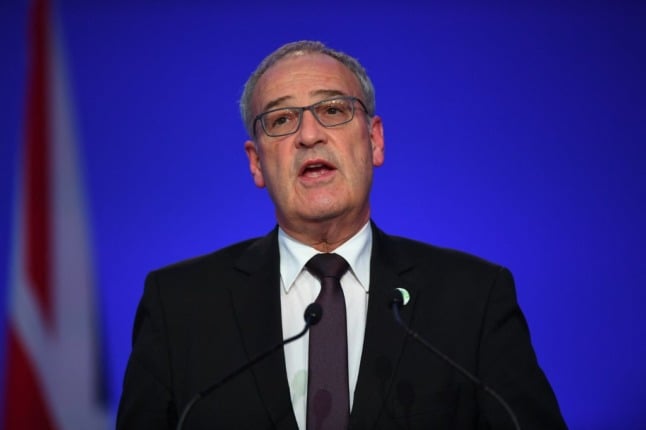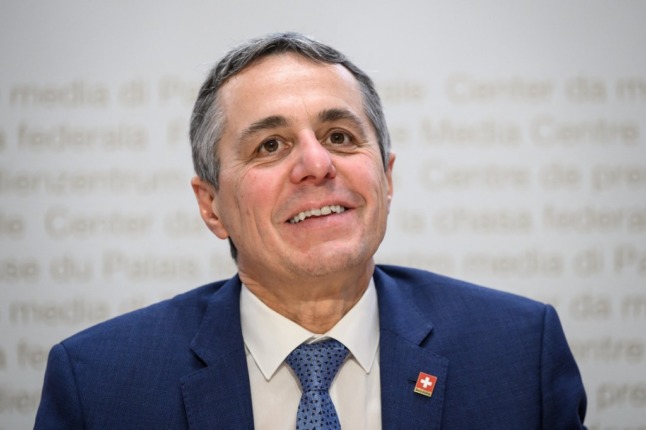Switzerland’s rotating one-year presidency is probably surprising for someone from the United States or a number of other countries where heads of state are elected (or sometimes self-appointed) for several terms.
But then, Switzerland’s entire political system is unusual when compared to that of other nations. It is not only because all the power — to make or repeal laws, for example — lies with the citizens rather than legislators, but also because the form of the government itself is not conducive to unilateral decision-making.
Again, unlike other countries, Switzerland is ‘managed’ by seven cabinet members representing the country’s major parties — the Federal Council — each of whom heads a federal department and is in line for one-year presidency based on their seniority (years served on the Council, not age).
When their turn comes up, they are elected by the United Federal Assembly — that is, both chambers of the parliament. This is mostly ceremonial, since everyone knows ahead of time who is in line for presidency in a given year.
Basically, it goes like this: ‘if it’s 2022, it must be Cassis.’
READ MORE: EXPLAINED: Who is Switzerland’s new President Ignazio Cassis?
A year is long enough
The 12-month rotation, a system that has been in place since the first Swiss president, Jonas Furrer, took office in 1848 (and left it in 1849) serves to ensure that nobody gets too comfortable or power-hungry in this position.
This is particularly relevant in a country governed collectively, rather than individually (see below).
Some duties, but not much power
Once elected, the president is not the head of state. Probably because seven heads are believed to be better than one, the entire Federal Council acts as the collective head of state. So it would not be wrong to say that Switzerland is a country with seven heads.
This notion may be difficult to grasp, but the entire system is based on the premise that all seven members are equal in status and nobody wields more power or has more clout than others.

The Federal Council with, on the right, the chancellor. Official Swiss government photo
If there is any back-stabbing or animosity among federal councillors, the public is not privy to it. Officially, everyone gets along just fine (despite the sometimes divergent political views) and presents a unified front. Terms like ‘consensus and collegiality’ are often used to describe how the seven members make decisions.
So what exactly do Swiss presidents do during their term?
According to the government site, “he or she chairs the Federal Council meetings and mediates in the case of disputes. In urgent situations the president can order precautionary measures. In the unlikely event that the Federal Council is unable to hold either an ordinary or an extraordinary meeting, the president may take a unilateral decision” — the latter being the only bit of “power” the president can wield.
Other than that “Presidents of the Swiss Confederation have special representational duties during their year of office. Traditionally they give a speech at New Year and on Swiss National Day on 1 August, which is broadcast on radio and television.”
“They also welcome the diplomatic corps – all foreign ambassadors to Switzerland – at a New Year’s reception in the Federal Palace. Since the 1990s it has been usual for the President of the Swiss Confederation to go on official visits abroad. The president is also responsible for fostering relations with the cantons.”
And even during their term, the presidents still head their respective federal departments. In case of the outgoing president, Guy Parmelin, it is the Federal Department of Economic Affairs, Education and Research, while the incoming one, Ignazio Cassis, oversees the Federal Department of Foreign Affairs.

Once their terms are over, the presidents go, mostly unceremoniously, back to their duties as federal councillors and department heads.
And if they hang around long enough, their presidential turn will come again in seven years’ time.
In fact, a federal councillor can be elected several times to this position, depending on the length of their term on the Federal Council.
Among the current members, Ueli Maurer and Simonetta Sommaruga have already held the position twice.
READ MORE: A foreigner’s guide to understanding Swiss politics in five minutes



 Please whitelist us to continue reading.
Please whitelist us to continue reading.
Member comments